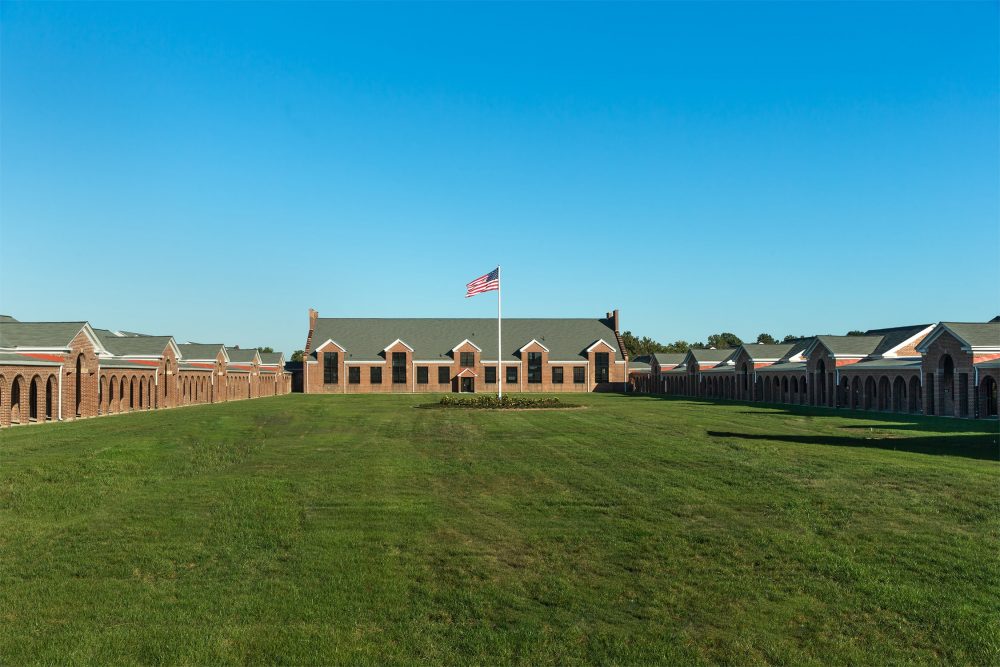Fairfax County moved closer Tuesday to finalizing a partnership with two developers to turn the old Lorton Prison into a mixed-use community, according to a news release from the county.
Highlights:
- June 3 public hearing authorized on an agreement to redevelop the old Lorton Prison into a mixed use community.
- Agreement with Alexander Company and Elm Street governs scope of development, timing and ownership, preservation and reuse of the historic buildings.
- County will share the site’s new infrastructure costs with the developers, contributing an estimated $12.7 million over four years.
The Board of Supervisors authorized a June 3 public hearing on the master development agreement with The Alexander Company, known for their expertise in adaptive reuse of historic buildings, and Elm Street, a local residential developer. This hearing is the first step needed to approve the deal, and the board is anticipated to take action on the agreement later this summer.
This legal agreement guides how the companies will develop the former, 80-acre prison site, now called the Laurel Hill Adaptive Reuse Area. It also lays out the timing for construction and ownership for the land and the preservation and reuse of the historic buildings.
Notably, it commits the county and the developers to share a portion of the cost for the new site infrastructure needed for adaptive reuse. The county’s projected share for infrastructure costs totals $12.7 million spread over four years.
Alexander and Elm Street will build the site’s infrastructure, rehabilitate the existing buildings, and construct new housing and retail. The companies will be responsible for all maintenance, operations and taxes.
The former prison buildings are historically protected. Agreements with federal, state and local preservation groups direct the county to explore the adaptive reuse and preservation of the former prison. Preserved and reused buildings will include dormitories, cell blocks, guard towers, prison walls, guard’s quarters, a chapel, and the on-site power plant. These buildings will be converted into housing, retail, office and civic or community space.
The plan to redevelop the Laurel Hill Adaptive Reuse Area calls for up to:
- 412 market-rate residential units, including up to 225 apartments, 157 townhomes, 6 condos and 24 single family homes
- 110,000 square feet of retail and office space
- 20,000 square feet in civic or community space
The project is divided into two development phases. The first phase encompasses the site’s former reformatory area, including the dormitories, industrial shop buildings, dining hall, chapel, power plant, and new construction.
Starting this October, 165 apartments, including 44 affordable units, will be built in these preserved buildings, along with 107 new homes. Construction on the apartments is expected to be finished in October 2016, and the new homes are slated for completion in 2020.
The project’s second phase, which is expected to begin in October 2016 and finish in 2022 depending on market conditions, will redevelop the former penitentiary area. Buildings in this area include a dining hall and six, two-story cell blocks that will be adaptively reused as retail and office space. The plans also call for new construction in this area, offering up to 49,000 square feet in commercial and retail space. In addition, the remainder of the new construction– 74 townhomes–will be completed in this phase.
In exchange for redeveloping the site, the county will lease most of the land and buildings to the developers rent-free for 99 years; the portion of the property developed as for-sale residential will be conveyed by deed.
Fairfax County acquired the former prison property, a total of approximately 2,323 acres, in July 2002. A portion of the former prison property, including the Laurel Hill Adaptive Reuse Area, is listed on the National Register of Historic Places.
The Laurel Hill Adaptive Reuse Area Master Plan was approved by the Board of Supervisors in 2010, after a 2-year master planning effort by the county and The Alexander Company. In March 2014, the Planning Commission recommended approval of the rezoning for the site pursuant to the Master Plan recommendations. The Board of Supervisors will also hold a public hearing for the rezoning on June 3.

